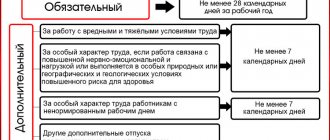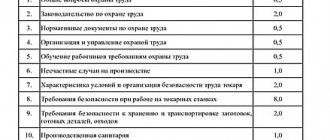In the United States, a fifth of all jobs are in shift positions, including night shifts. In Russia, these numbers are hardly lower: many of us also work at night. At the same time, the doctor on duty, the security guard and the metallurgist standing at the open-hearth furnace are united by one common problem: poor sleep due to work, which arose as a result of a violation of circadian rhythms.
Ideally, our wakefulness should correspond to the light part of the day, and our sleep should correspond to the dark part. According to this, our internal clock works, biochemical and physiological reactions occur in the body. While the sun is above the horizon, all our organ systems are actively working, our metabolism “accelerates,” and our body temperature rises. By nightfall, all these processes slow down, hormonal levels, enzyme synthesis, nervous system activity, and so on change; we feel tired and want to fall asleep.
WITH
A changing night schedule disrupts the biological clock. Moreover, for a shift worker, day and night do not always simply change places. A person may have a variable work schedule at night and during the day: a chaotic alternation of day, diurnal and night shifts. As a result, disruption of circadian rhythms occurs and gradually worsens. Circadian rhythms (internal clock, biological clock) are fluctuations in the intensity of various biological processes associated with the change of day and night.
The cause of circadian disorders may not only be due to the fact that a person works with a shift schedule. If you've ever taken a long-distance flight, you remember how you felt when you found yourself several hours “before” or “after” your usual time. An employee who has an inconvenient schedule experiences approximately the same thing, with the only difference being that he makes “time jumps” not occasionally, but several times a week.
Daytime sleepiness, problems falling asleep, low mood, a tendency to depression, digestive disorders - symptoms of circadian rhythm disorders significantly worsen the quality of life. Ideally, to improve sleep and maintain health, you should stop working at night. But if you can’t keep a shifting night schedule, you can at least try to reduce its harmful effects. The following tips will help with this.
Test online:
Assess how you feel during the day to see if you have sleep disorders
Work with a shift schedule. Before the shift
- If it is within your power, try to plan your busy schedule like this...
- What
when you work day, night and the next day. Only a day or 12 hours, and after that - rest. Otherwise, poor sleep due to work is simply guaranteed.
if you didn’t have “one and a half” shifts - So that night shifts alternate with day shifts not chaotically , but in an established order. For example, it is convenient to plan a shift night schedule in the “every three days” or “one night shift - rest - two day shifts” mode.
- So that the graph rotates “clockwise”. Example: one day you work during the day, one in the evening, one at night. This will make it easier to adapt.
- The day before your shift, do not drink alcohol .
- If you have to work all night, and even more so the night and the next day, then you definitely need to sleep at least 2-4 hours immediately before going to work .
- If the shift lasts only until half the night, it is better not to sleep for a long time before work - there is a high risk of not falling asleep until the morning. Alternatively, you can take a 20-30 minute nap to refresh yourself.
- If you are planning a night shift, try to get a good night's sleep the previous night .
- Before you leave for work, prepare yourself a meal so that when you return you can quickly eat and go to bed.
Is it legal to have an employee with a shift schedule work on all of his days off?
I.V. Tarasova, author of the answer, consultant to Askon on labor issues and personnel records management
QUESTION
Can an employee with a rotating schedule (2/2 day shifts) be involved in working on weekends (with his consent and with double pay), so that he actually has no days off during the month?
ANSWER
Can not.
Involvement in work on a day off according to the meaning laid down by the legislator in Art. 113 of the Labor Code of the Russian Federation, is the attraction of an employee to work on a day that was scheduled as a day off.
Labor legislation does not establish restrictions on the number or frequency of attracting employees to work on weekends and does not make this provision dependent on the type of recording of working hours or the employee’s work schedule.
However,
if it is necessary to attract an employee with a shift schedule to work on days off or overtime (after the end of his working day (shift)),
the employer must take into account that the employee must not:
- work after the day shift for more than 4 hours for two days in a row;
- work two shifts in a row;
- the duration of rest between shifts should be twice as long as the duration of the shift itself;
- The duration of weekly uninterrupted rest must be at least 42 hours.
The rest of the time, with the consent of the employee, the employer has the right to involve him in work on a day off or overtime (no more than 120 hours per year).
JUSTIFICATION
In accordance with Art. 99 of the Labor Code of the Russian Federation, overtime work is work performed by an employee on the initiative of the employer outside the working hours established for the employee: daily work (shift), and in the case of cumulative accounting of working hours - in excess of the normal number of working hours for the accounting period.
An employer's involvement of an employee in overtime work is permitted in writing.
consent in the following cases:
- if it is necessary to perform (finish) work that has begun, which, due to an unforeseen delay due to technical production conditions, could not be performed (finished) during the working hours established for the employee, if failure to perform (non-complete) this work may lead to damage or destruction of the employer’s property ( including property of third parties located at the employer, if the employer is responsible for the safety of this property), state or municipal property or create a threat to the life and health of people;
- when carrying out temporary work on the repair and restoration of mechanisms or structures in cases where their malfunction may cause the cessation of work for a significant number of workers;
- to continue work if the replacement employee fails to appear, if the work does not allow a break. In these cases, the employer is obliged to immediately take measures to replace the shift worker with another employee.
Involving an employee in overtime work by an employer without his consent
allowed in the following cases:
- when carrying out work necessary to prevent a catastrophe, industrial accident or eliminate the consequences of a catastrophe, industrial accident or natural disaster;
- when carrying out socially necessary work to eliminate unforeseen circumstances that disrupt the normal functioning of centralized hot water supply, cold water supply and (or) sanitation systems, gas supply, heat supply, lighting, transport, communications systems;
- when carrying out work the need for which is due to the introduction of a state of emergency or martial law, as well as urgent work in emergency circumstances, that is, in the event of a disaster or threat of disaster (fires, floods, famine, earthquakes, epidemics or epizootics) and in other cases posing danger threat to the life or normal living conditions of the entire population or part of it.
In other cases, involvement in overtime work is permitted with the written consent of the employee
and taking into account the opinion of the elected body of the primary trade union organization.
Note:
Pregnant women, workers under the age of eighteen, and other categories of workers are not allowed to work overtime in accordance with the Code and other federal laws. Involvement of disabled people and women with children under three years of age in overtime work is allowed only with their written consent and provided that this is not prohibited for them due to health reasons in accordance with a medical report issued in the manner established by federal laws and other regulations legal acts of the Russian Federation. At the same time, disabled people and women with children under three years of age must be informed of their right to refuse overtime work upon signature.
The duration of overtime work should not exceed 4 hours for each employee for two consecutive days and 120 hours per year
.
Thus, the employer has the right to involve the employee in additional (overtime) work after the day shift for no more than 4 hours for two days in a row.
According to the general rule established by Part 1 of Art. 113 of the Labor Code of the Russian Federation, work on weekends is prohibited
and non-working holidays,
with the exception of cases of attracting employees to work on such days as provided for in this article (with or without the consent of the employees) - i.e. the employee is called to work on a day that was scheduled as a day off. Labor legislation does not establish restrictions on the number or frequency of attracting employees to work on weekends and does not make this provision dependent on the type of recording of working hours or the employee’s work schedule. However, if it is necessary to attract an employee working on a shift schedule to work on a day off, the employer must take into account the following:
According to Art. 103 of the Labor Code of the Russian Federation, shift work - work in two, three or four shifts - is introduced in cases where the duration of the production process exceeds the permissible duration of daily work, as well as for the purpose of more efficient use of equipment, increasing the volume of products or services provided.
When working in shifts, each group of workers must work within the established working hours in accordance with the shift schedule.
According to Art. 103 of the Labor Code of the Russian Federation, work for two shifts in a row is prohibited.
The duration of weekly uninterrupted rest is at least 42 hours ( Article 110 of the Labor Code of the Russian Federation ).
However, this norm does not contain any other conditions for its non-compliance.
Note:
In addition, it is necessary to take into account that for certain categories of workers the legislation establishes the maximum duration of daily work (shift) (Article 94 of the Labor Code of the Russian Federation) and the maximum duration of standard working hours per week (Article 92 of the Labor Code of the Russian Federation).
Taking into account the above, when engaging this employee to work beyond normal working hours, the employer should take into account that the employee must not:
- work after the day shift for more than 4 hours for two days in a row;
- work two shifts in a row (Part 5 of Article 103 of the Labor Code of the Russian Federation);
- the duration of rest between shifts should be twice as long as the duration of the shift itself (clause 10.24 SP 2.2.2.1327-03. 2.2.2. Occupational hygiene. Technological processes, materials and equipment, working tools. Hygienic requirements for the organization of technological processes, production equipment and working tools Sanitary and epidemiological rules (approved by the Chief State Sanitary Doctor of the Russian Federation on May 23, 2003)).
- the duration of weekly continuous rest is at least 42 hours (Article 110 of the Labor Code of the Russian Federation).
The rest of the time, the employer, with the consent of the employee, has the right to involve him in work on a day off or overtime.
Work with a shift schedule. During shift
- If
It's possible, sleep at work . Representatives of some specialties (fire brigades on duty, watchmen) are allowed to do this. If you are prohibited from prolonged sleep during a shift schedule, you can take a 20-30 minute nap in the middle of the night, during your work break. - It is best not to eat after ten o'clock in the evening; The digestive organs are not tuned to active activity at night. If you allow yourself to snack, avoid large meals, as well as any heavy, fatty foods.
- If you eat at work, don't do it while running . Sit down and eat slowly. Otherwise, there is a high risk of unnoticed eating more than planned, and this will aggravate the consequences of a sleepless night.
- Caffeine-containing foods and drinks are allowed only in the first half of the night . Stop taking them 6 hours before you plan to go to bed (that is, approximately 5 hours before the end of your shift), as this may prevent you from falling asleep when you return home.
- If, towards the end of the night shift, you want to sleep, but you can no longer drink coffee, use other methods to help you cheer up : exercise, going out into the fresh air, washing with cold water, some kind of concentrated activity, etc.
- During the night shift, drink water (0.7-1 liters per night), this helps prevent dehydration, which aggravates the effects of circadian rhythm disturbances.
Inter-shift rest with summarized recording of working hours
Inter-shift rest as a type of time provided to the employee at his own discretion is stipulated in Art.
107 Labor Code of the Russian Federation. The duration of the shift is limited by the norms of Art. 94 Labor Code of the Russian Federation. The restrictions do not apply to all workers: they were introduced only for categories of workers who need additional protection. For example, for those working and studying at the same time, the shift should not last more than 4 hours. Shift length restrictions for all workers may be imposed by collective agreement or industry agreement.
The duration of the break between shifts is regulated not by labor standards, but by sanitary rules. According to SP 2.2.2.1327-03, two options for the duration of rest between shifts are allowed:
1. twice as long as the shift (or longer),
2. minimum 8 hours - only if the work is necessary to eliminate the accident.
Note! Sanitary standards are mandatory for the employer, as are labor standards. For their violation, liability is provided under Art. 6.3 Code of Administrative Offenses of the Russian Federation.
According to Part 1 of Art. 104 of the Labor Code of the Russian Federation, summarized recording of working hours (SURV) is introduced when the employer cannot comply with the requirements for daily/weekly work hours. Special cases of RMS are:
- flexible schedule;
- shift work.
Thus, the rest time between shifts during RSA does not depend on what regime is established at the enterprise as a whole or for a specific employee. It is established taking into account the requirements of Chapter. 18 Labor Code of the Russian Federation.
For some professions, there are requirements for the length of rest time during RSA, regardless of the mode. For example, according to clause 25 of Order No. 15 of the Ministry of Transport of Russia dated August 20, 2004, organizations conducting RMS must provide drivers with at least 12 hours of rest.










